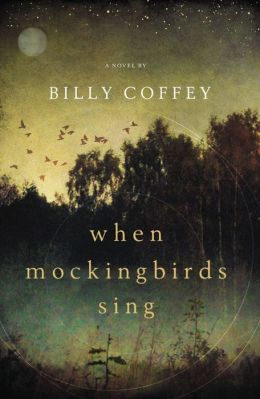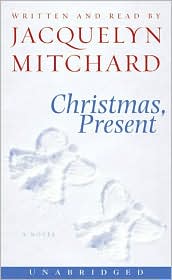
This is a brief blurb on what the book is about:
What marks the boundary between a miracle from God and the imagination of a child?Leah is a child from Away, isolated from her peers because of her stutter. But then she begins painting scenes that are epic in scope, brilliant in detail, and suffused with rich, prophetic imagery. When the event foreshadowed in the first painting dramatically comes true, the town of Mattingly takes notice.
Leah attributes her ability to foretell the future to an invisible friend she calls the Rainbow Man. Some of the townsfolk are enchanted with her. Others fear her. But there is one thing they all agree on—there is no such thing as the Rainbow Man.
Her father, the town psychologist, is falling apart over his inability to heal his daughter . . . or fix his marriage. And the town minister is unraveled by the notion that a mere child with no formal training may be hearing from God more clearly than he does.
While the town bickers over what to do with this strange child, the content of Leah’s paintings grows darker. Still, Leah insists that the Rainbow Man’s heart is pure. But then a dramatic and tragic turn of events leaves the town reeling and places everyone’s lives in danger. Now the people of Mattingly face a single choice:
Will they cling to what they know . . . or embrace the things Leah believes in that cannot be seen?
I really struggled with trying to understand the author's worldview as it affects this book. He is clearly trying to get the reader to believe that the "Rainbow Man" is God. In the bible, God is known by many names. Bible.org says this:
The Lord Jesus said in John 17:3, “And this is eternal life, that they may know Thee, the only true God, and Jesus Christ whom Thou hast sent.” The many names in Scripture constitute additional revelation of God’s character, His works, and His relationship to us based on His character and works. The names which God chose for Himself and which are ascribed to Him in the Word of God are additional revelations of the who and what of God that we may know and relate to God.
Never once in the bible is 'Rainbow Man' used as a name for God. In this book, Rainbow man choses to reveal himself to a little girl that comes from an unbelieving family. She does not know God. She is an agnostic. In Romans 10:14 it states "How, then, can they call on the one they have not believed in? And how can they believe in the one of whom they have not heard?" Yet, in this story the Rainbow man comes to an agnostic girl and she is used to warn people of upcoming danger. Is this really from God? In the bible God speaks against those who practice divination, or sorcery, interprets omens, engages in witchcraft or casts spells, or who is a medium or spiritist or who consults the dead. These are detestable practices to the Lord. (Deuteronomy 18:10-13) In the bible, God does use people to provide warning to turn from our sin - such as he used Jonah to go warn Ninevah. The Lord sent Nathan to rebuke David. (2 Samuel 12). So the Lord does use prophets to warn people and rebuke leaders. He has the power to use anyone but in the bible the Lord doesn't chose people that don't know Him. He does use people that are imperfect and even those that might choose to not listen at first - such as the case with Jonah. Nowhere does he call an agnostic to go out and preach that one should believe. How can an unbeliever bring people to faith?
As I was reading the book I could clearly see the author trying to make the reader believe that the Rainbow man was a child's view of God. While I thought the book was well written, I do not believe the main premise of the author - that the Rainbow man is God trying to point people to faith. Scripture just doesn't back up the author's interpretation and therefore, I find it difficult to recommend this book.
This book was provided for free from Thomas Nelson through Booksneeze in exchange for a honest review.





